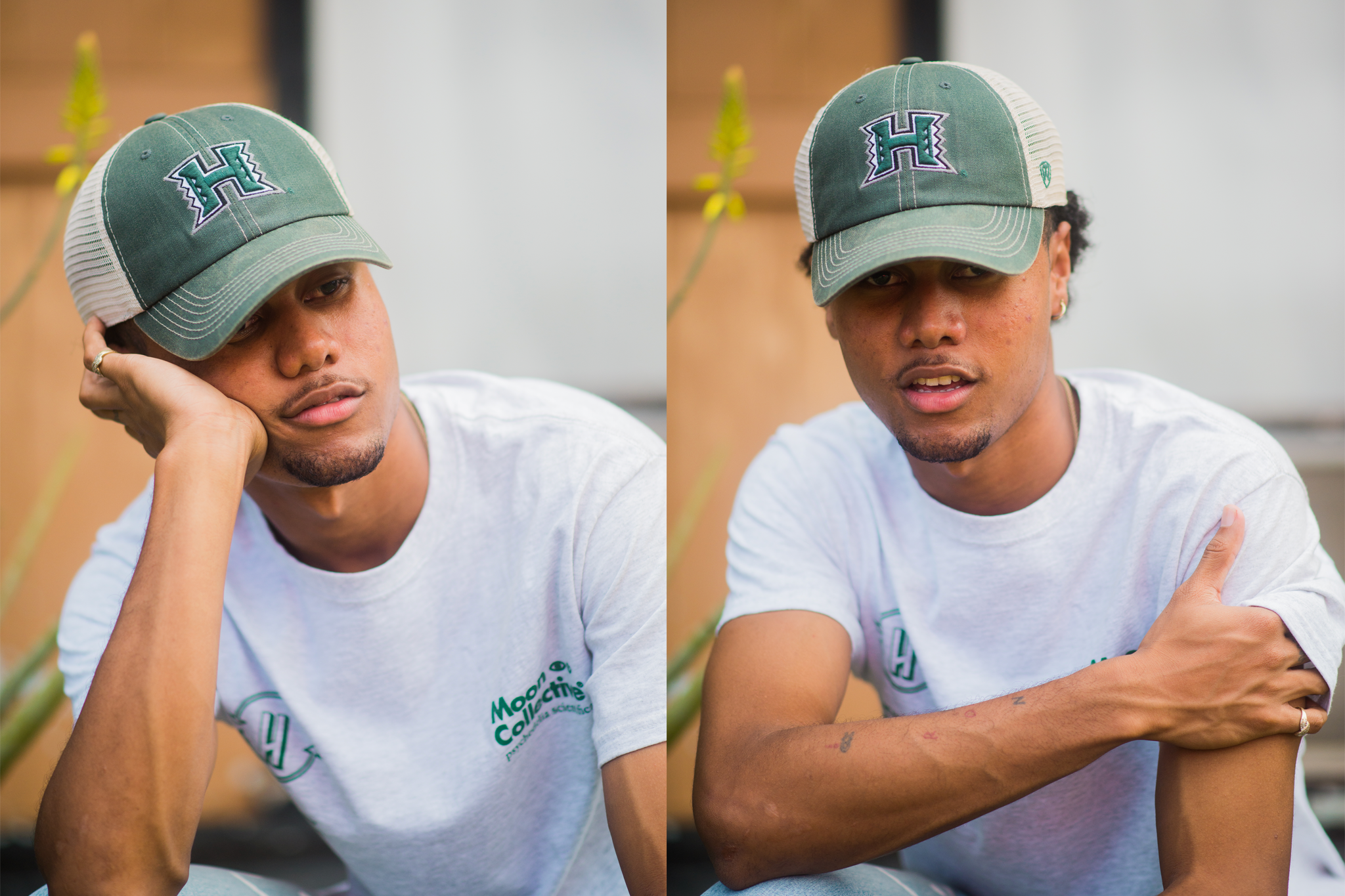Catchy beats inflected with local humor has made Ro into a burgeoning artist and a hometown sensation.
In February 2021, Ro told his grandma that he had a surprise waiting for her in the car. But when she hopped into the front seat of his Honda Civic, she found nothing out of the ordinary. Then her 21-year-old grandson turned the radio on, just as a DJ introduced the song coming up next, “Kodak Moment.”
On the breezy, nostalgia-tinged jam, Ro raps the first verse and sings the hook; he’s the first person you hear on the track, which also features producer Daju, guitarist Tyler Donovan and rapper Koins. It’s a song that evokes simpler times of chasing the sunshine and playful flirtations—one you’ll be singing along with by the second chorus and unconsciously humming later that night. It’s the first radio hit any of the artists have had.
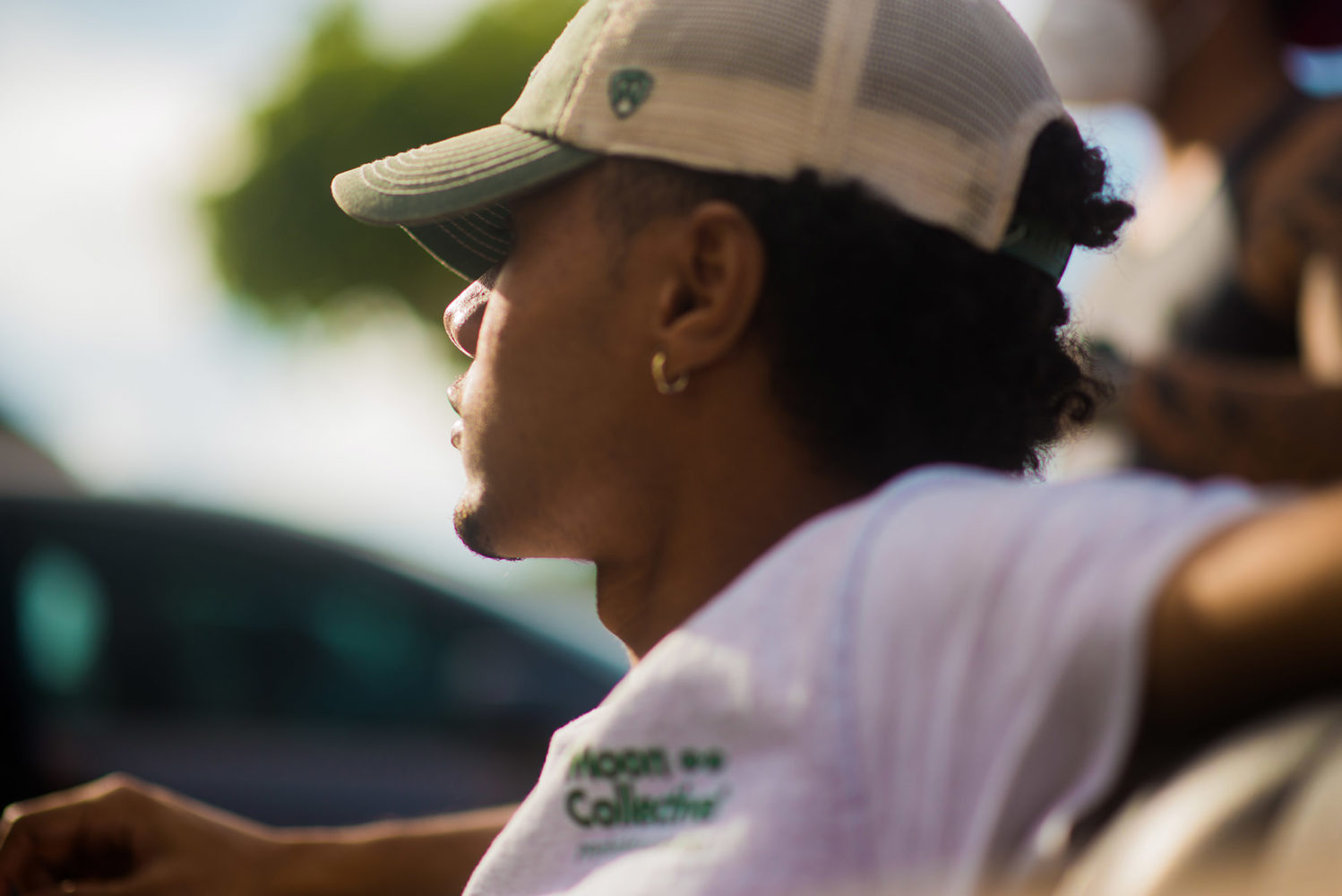
“As soon as I heard it played back to me, I knew this was gonna be big for us,” Ro says. “I wasn’t shocked that it made it to the radio.”
He may not have been surprised, but his grandma—who he calls mom since she raised him—certainly was. “That’s you?” she asked when she heard her grandson’s voice crooning through the car speakers. “Oh my god!” She started moving her hands to the beat as if she were the one rapping, and a glowing smile lit up her face. If you’ve ever seen one of Ro’s many music videos, you’d recognize that smile—it’s the same one he has in virtually every one of them. It’s not just a genetic bequeathal from his grandma, either. It’s a reflection of how she’s influenced his life and his character.
When Ro was a kid in Mākaha Elementary School, he got in trouble for picking on a classmate. Ro’s grandma told him, “It’s better to go about life trying to make people smile.” He spent the next day trying to make his classmate smile, and they became best friends. “It was way better than being a bully,” Ro says.
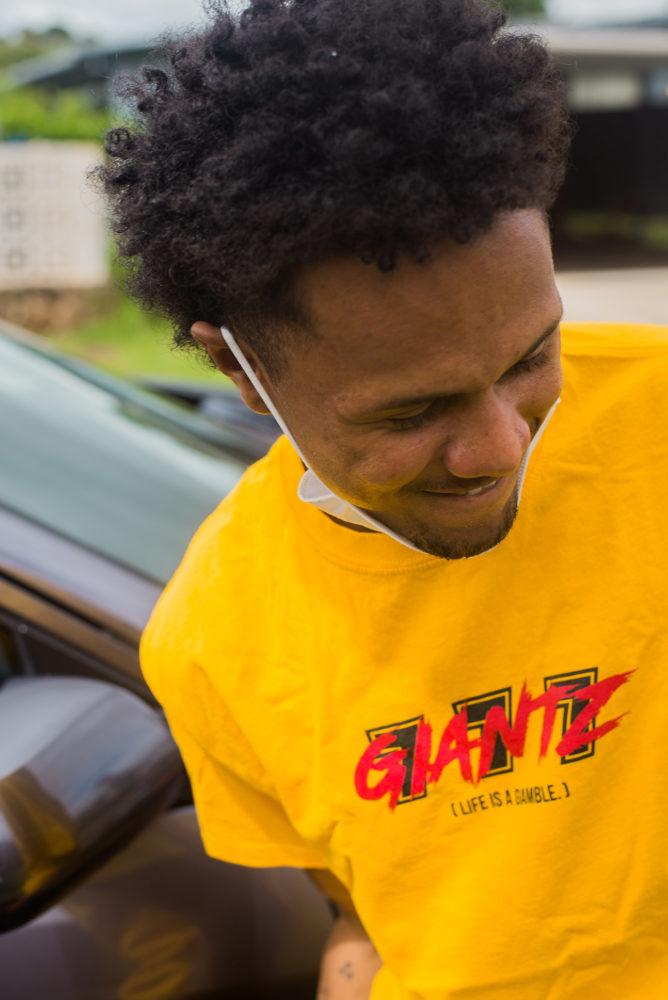
Rap doesn’t have to be serious.
Ro
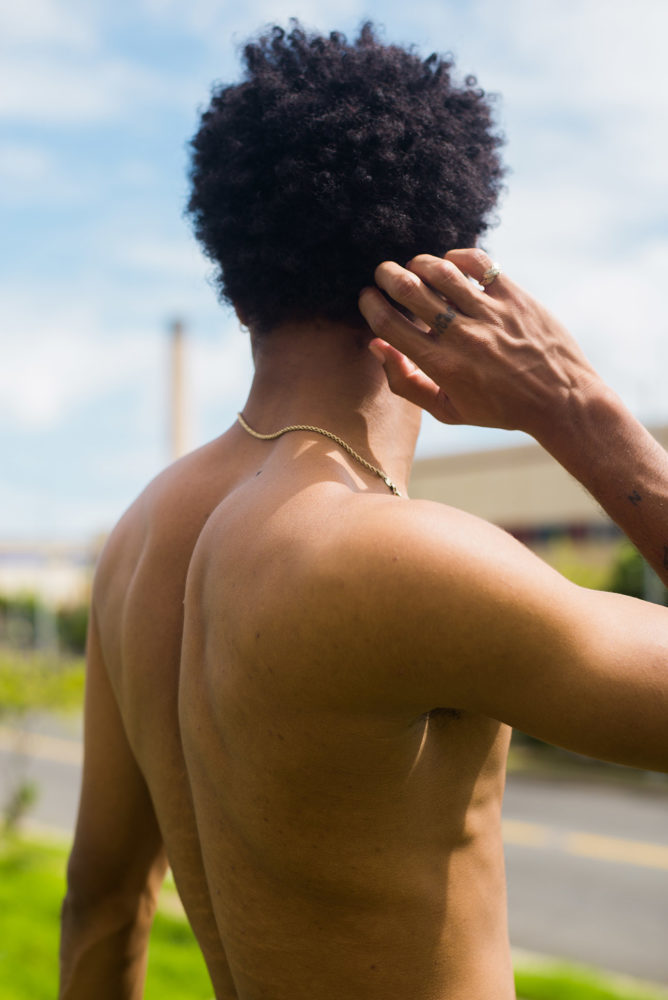
Ro (an abbreviation of Myron) was born in 1999 in Sacramento, California to a Samoan mother and Black father. As an infant, his parents got into legal trouble, putting him and his two siblings in the care of their grandparents.
They took the kids back to their home, the Samoan island of Savaiʻi, only to quickly realize there wasn’t much of a future for them there.
Since the kids already had American passports, their grandparents moved the family to Hawai‘i, where they felt they could find the closest approximation to life in Samoa while taking advantage of the opportunities offered in America. Ro was just over a year old.
Ro’s childhood was spent bouncing between different houses in Mākaha, Makakilo and Waipahu. Money is always a strain in Hawai‘i, especially for immigrants, but things got incalculably harder when Ro’s grandpa was diagnosed with Alzheimer’s disease and could no longer work. Eviction notices and new landlords were regular occurrences.
But no matter what house they were in, music was a constant. “My mom [grandma] taught choir for her church. Samoans go hard in the vocal department, so we’d always be playing local music and American pop music,” he remembers.
“That’s just the Samoan immigrant thing to do: you listen to catchy, simple stuff.”
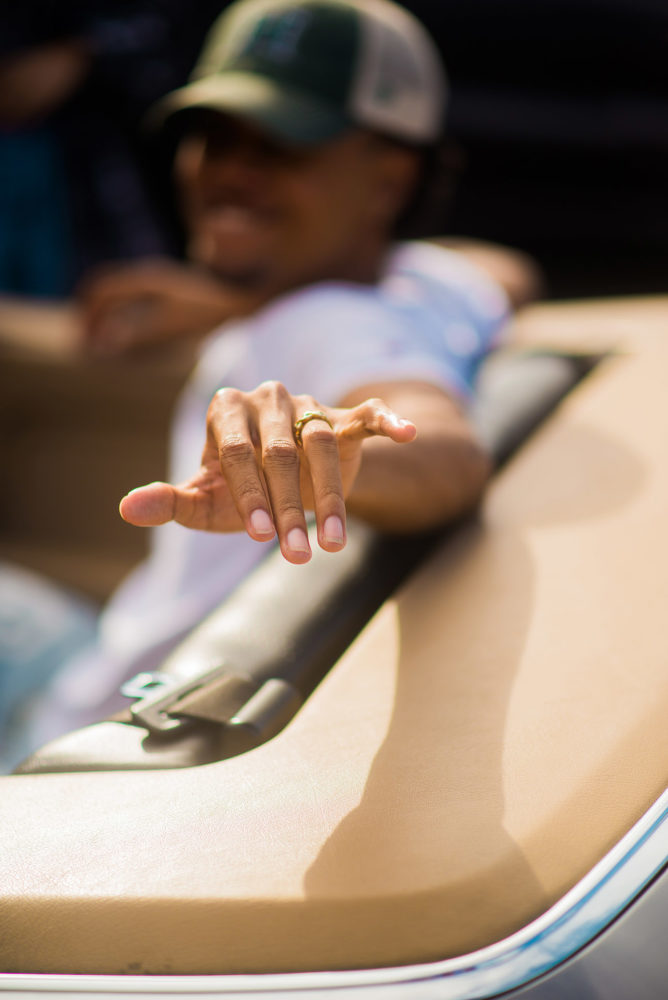
Then he heard his first hip-hop song: “Crazy Rap” by Afroman, often mistakenly called “Colt 45.” It taught him a lesson that informs his music today. “Rap doesn’t have to be serious. Here’s this guy walking us through how he’s smashing all these girls and all the repercussions he faces,” he says. “It’s hilarious.”
During his senior year at Waipahu High School in 2017, Ro started making his own music, trading rhymes with friends and messing around with music production software on his built-from-scratch computer when he wasn’t playing Minecraft.
“Once I started, I got that buzz,” Ro says. “I just got addicted to trying to make songs better and better.”
I’m not just a kid from Hawaiʻi throwing shit into the ocean anymore.
Ro
That addiction has led to a steady deluge of buoyant and ebullient music that Ro home-cooks in a makeshift studio in his bedroom. He released his first EP, Haole, in August 2020, just to see if he could put a solo project together.
“Pouring my heart into a single project just for it to shove me a centimeter isn’t worth my time,” he says. “I’m just focused on improving on the craft, putting out better visuals, and leaking singles until my music spreads around.”
Hawai‘i hip-hop has been a lot of things—a rallying cry for Hawaiian rights, a look at the underbelly of local street life—but it’s never been this unapologetically fun. It’s a big part of what makes Ro unique as a rapper and singer.
But he wouldn’t call himself an artist just yet. “I’m just a brown boy trying to have fun. If I keep getting better, it will pay off,” he says. “I’m not worried about getting discovered. Talented people get discovered every day. I’m more worried about sucking when I get discovered. But when I learn what I do best and how to sound, it’s fucking over.”
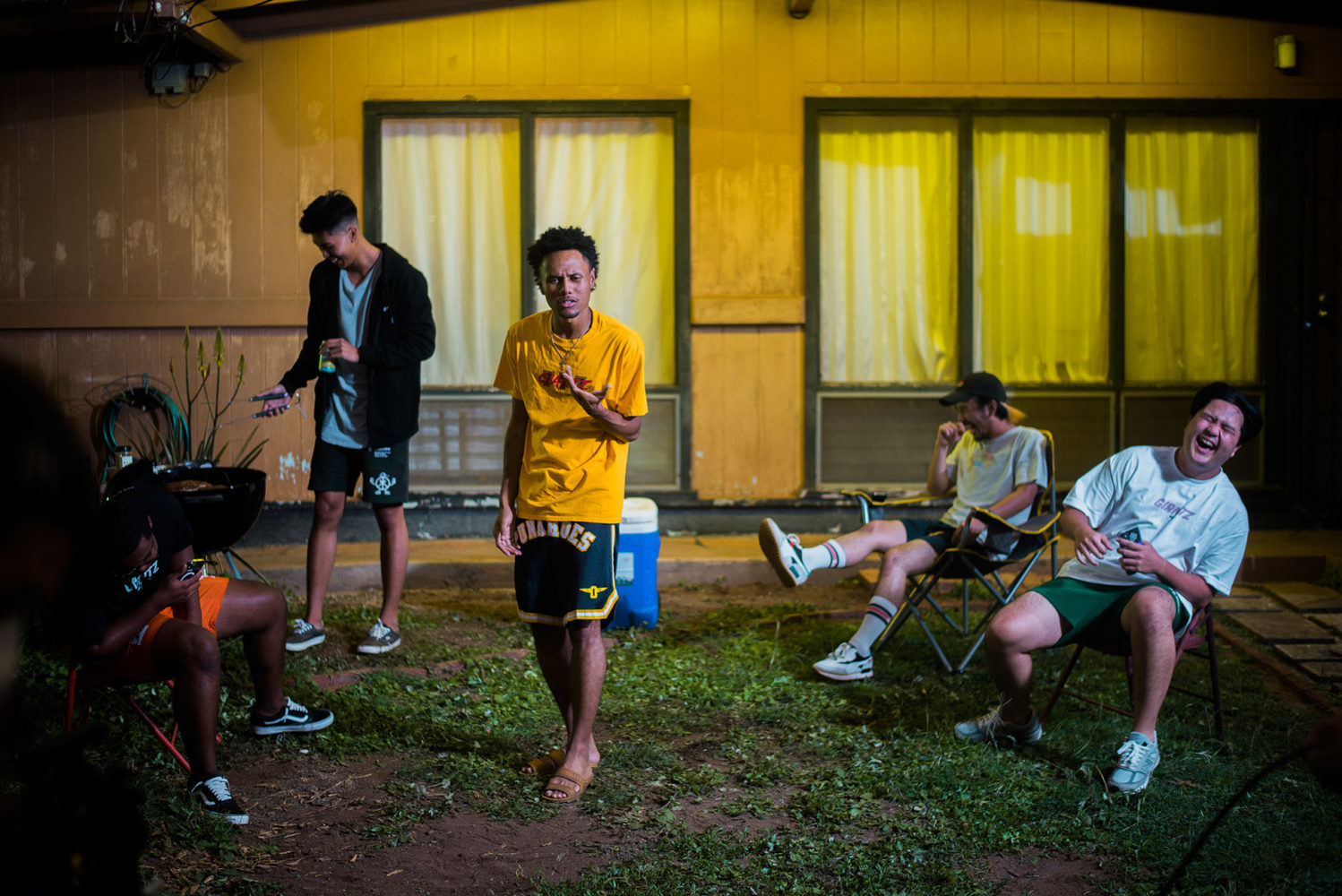
Those were prophetic words. A few weeks after saying that, Ro signed a deal with the indie record label AWAL after someone there came across his music by chance.
The deal gives Ro—who has since announced a name change to 8Ro8, though it’s still pronounced the same as Ro—complete ownership and creative control over his music, with access to the record label’s distributive and promotional muscle.
“I’m not just a kid from Hawai‘i throwing shit into the ocean anymore,” he says. “Now I got a jet boat.”
On that note, “Kodak Moment” is fitting for his first hit. It’s an infectious song from a promising talent, but it will no doubt be eclipsed in the coming years—probably sooner than later with how frequently Ro releases new music.
In 10 years, we’ll remember it as the beginning of what will almost certainly be an established force by then. The melody will randomly return to us, and we’ll lapse into childhood daydreams of puppy love and sun rays peeking through palm leaves.
We’ll look back on it as a memorable moment, but just that—a moment.

